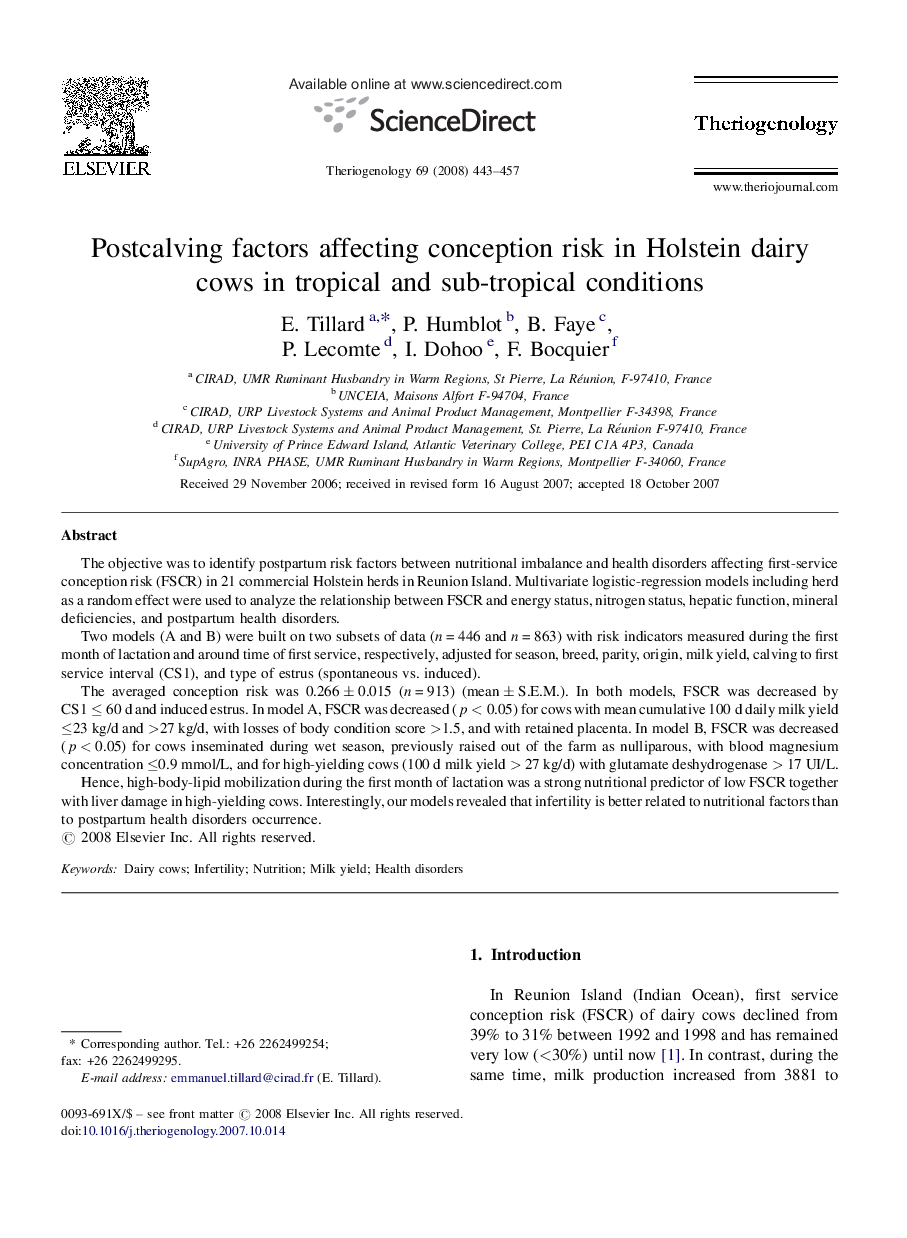| Article ID | Journal | Published Year | Pages | File Type |
|---|---|---|---|---|
| 2096205 | Theriogenology | 2008 | 15 Pages |
The objective was to identify postpartum risk factors between nutritional imbalance and health disorders affecting first-service conception risk (FSCR) in 21 commercial Holstein herds in Reunion Island. Multivariate logistic-regression models including herd as a random effect were used to analyze the relationship between FSCR and energy status, nitrogen status, hepatic function, mineral deficiencies, and postpartum health disorders.Two models (A and B) were built on two subsets of data (n = 446 and n = 863) with risk indicators measured during the first month of lactation and around time of first service, respectively, adjusted for season, breed, parity, origin, milk yield, calving to first service interval (CS1), and type of estrus (spontaneous vs. induced).The averaged conception risk was 0.266 ± 0.015 (n = 913) (mean ± S.E.M.). In both models, FSCR was decreased by CS1 ≤ 60 d and induced estrus. In model A, FSCR was decreased (p < 0.05) for cows with mean cumulative 100 d daily milk yield ≤23 kg/d and >27 kg/d, with losses of body condition score >1.5, and with retained placenta. In model B, FSCR was decreased (p < 0.05) for cows inseminated during wet season, previously raised out of the farm as nulliparous, with blood magnesium concentration ≤0.9 mmol/L, and for high-yielding cows (100 d milk yield > 27 kg/d) with glutamate deshydrogenase > 17 UI/L.Hence, high-body-lipid mobilization during the first month of lactation was a strong nutritional predictor of low FSCR together with liver damage in high-yielding cows. Interestingly, our models revealed that infertility is better related to nutritional factors than to postpartum health disorders occurrence.
